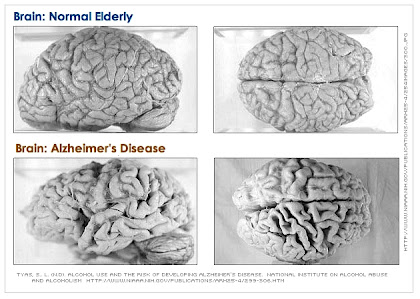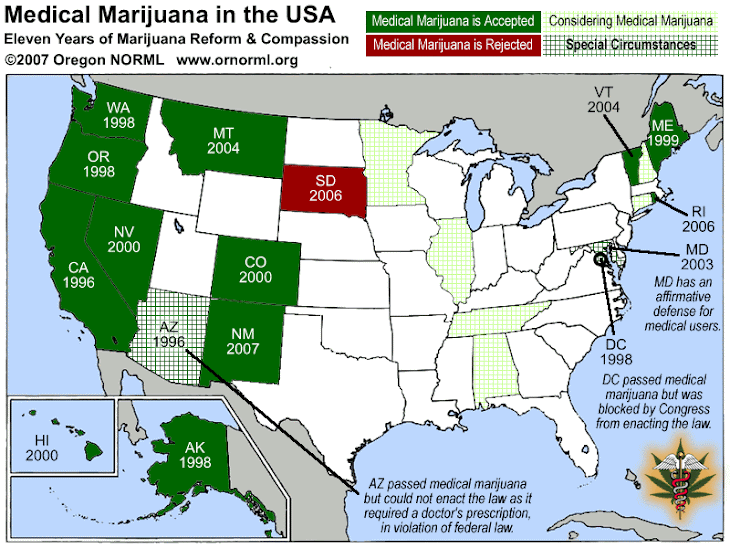August 29, 2003 -- A sea change in science is slowly turning the tide of the medical marijuana debate.
For hundreds of years, marijuana has been used to treat a wide variety of illnesses. But the herb has been illegal throughout the modern era of scientific medical research. Patients swear the drug works to relieve pain, prevent seizures, and counteract the nausea-inducing effects of cancer chemotherapy. But by today's standards, there's no definitive proof that this is so.
Why not? Nearly all U.S.-funded marijuana research has looked for harmful effects from using marijuana as a recreational drug. Meanwhile, there's been little money -- and huge regulatory hurdles -- for studies of marijuana's benefits. That's now changing despite the fact that marijuana remains classed as a Schedule I drug -- a dangerous compound with no medical uses.
Why now? Evidence is beginning to break down the wall of emotion preventing medical marijuana research.
Expert Panels, Breakthrough Findings
It was never clear exactly how marijuana -- which scientists call cannabis -- exerted its euphoria-inducing effects on the brain. Then, in the 1980s, a series of breakthrough studies showed that the body actually makes its own cannabis-like compounds -- cannabinoids.
Why are they there? That question led to the discovery that the body has an entire system based on cannabinoid signals. The signals seem to calm down overexcited nerve cells, says Igor Grant, MD, professor of psychiatry and director of the Center for Medicinal Cannabis Research (CMCR) at the University of California, San Diego.
"It may be the cannabinoid systems -- this is a crude example -- but I think of them as our internal shock absorbers," Grant tells WebMD. "They are circuits that prevent overexcitability, kind of dampers. If that's correct, there are going to be a number of medical applications. For example, I wouldn't be surprised if there were applications for epilepsy and other types of seizures."
Grant isn't the only scientist excited by these possibilities.
In 1997, a National Institutes of Health expert panel concluded that more needs to be known about possible marijuana benefits. In 1999, the Institute of Medicine agreed. It pointed to several areas crying out for clinical marijuana research, notes CMCR co-director Andrew Mattison, PhD.
"There are cannabinoid receptor systems in the brain areas that regulate motion -- and, in retrospect, we know that people with multiple sclerosis and difficulty with spasticity sometimes use medicinal cannabis. That is one of the Institute of Medicine indications for clinical trials," Mattison tells WebMD.
"There is a cannabinoid receptor for pain, another site that modulates appetite -- there's going to be a wealth of basic science research that will hopefully have clinical and practical applications to many different medical indications."
Early Clinical Findings Support More Research
Although funded through 2003 and only at various University of California locations by the California state legislature, the CMCR has, by default, become the national clearinghouse for marijuana research.
The CMCR works closely with state and federal regulators - including the FDA, the Drug Enforcement Administration, and the National Institute on Drug Abuse (the only legal source of marijuana in the U.S.). CMCR provides funds for clinical trials of marijuana. It's won national praise for holding its investigators to the highest scientific standards.
Even before the CMCR was up and running, one stubborn researcher managed to launch a marijuana clinical trial. Donald Abrams, MD, now chief of hematology/oncology at San Francisco General Hospital, is best known for being one of the first doctors to recognize and treat the illness that came to be known as AIDS. AIDS patients have long used marijuana to fight the terrible wasting the disease causes. It's also been said to help an extremely painful condition known as peripheral neuropathy -- a painful nerve disease that has few effective treatments.
Early Clinical Findings Support More Research continued...
Abrams wanted to get federal approval to see whether marijuana really works for this condition. But years of effort proved futile in the face of opposition by federal agencies. Finally, Abrams had a brainstorm. Marijuana affects the immune system. It was just possible that the drug was making patients worse, not better. He submitted a research proposal to look for a harmful effect of marijuana -- and finally won the approval he sought.
The results of that trial appear in the August 19 issue of Annals of Internal Medicine. And they contradict previous studies done in the test tube and with lab animals.
"Much of the published work on marijuana and the immune system is focused on animals and in vitro studies," Abrams tells WebMD. "And, well, if you flood a lot of petri dishes with THC [the active ingredient in marijuana], the immune-cell cultures are going to do poorly.
"In our clinical trial we really didn't see any detriment to the immune system from smoking cannabis. Basically we saw no perturbation of HIV viral load, no detriment to the immune system, and no significant interaction with anti-HIV drugs."
With CMCR funds, Abrams is now doing his peripheral neuropathy study. And he's well on the way to launching a study to see whether adding marijuana to other pain drugs can give relief to dying cancer patients. Overall, the CMCR now has five full-fledged clinical trials under way, which will enroll some 450 patients.
Doctors' Shifting Attitudes on Medical Marijuana
In the last week of July 2003, Medscape -- WebMD's web site for medical professionals -- asked its members what they thought about medical marijuana. It wasn't a scientific poll, although a member's vote is counted only once. Still, the results were surprising. There was a huge response. Three out of four doctors -- and nine out of 10 nurses -- said they favored decriminalization of marijuana for medical uses.
Is it a real trend? Abrams thinks so, but warns that long-held attitudes are slow to change.
"I was pretty much the Lone Ranger of medical marijuana research a few years ago. But not now," he says. "Still, researchers are wary of marijuana research. They feel their reputation may be tainted. And they may be right. For several years I've been invited to do grand rounds at a local hospital in the Bay area. Last year they disinvited me, and I hear it was because of my marijuana research. I've been disinvited from other speaking engagements, too."
"I think these attitudes will change over time -- but it will be slow-going," Mattison says. "Dr. Abrams' comment is typical. People in the medical profession may chuckle at marijuana research and think it is not a bona fide area for scientific investigation. But that will change as the science becomes more clear and more understandable and there are, at some point, some practical applications."
Doctors' Shifting Attitudes on Medical Marijuana continued...
One surprising source of support is moral encouragement from conservative politicians.
"We get a number of stories from elected officials who say, 'Look, I am not for legalization of marijuana. But my sick mother, relative, son, is using it and doing so much better, -- there must be something in it,'" Mattison says.
"A number of people have friends where medical therapies aren't working, and cannabis provided relief from spasticity, pain, nausea, or vomiting. That is turning some opinions and helping people let go of the stereotypical notion that medical marijuana is for potheads."
The CMCR has put aside enough money to complete all its currently approved clinical trials. But the California budget crisis means no more money this year -- at least. Does this mean that clinical research into medical marijuana is over? Grant doesn't think so.
"I think that even if our center runs on hard times, the ball has started rolling," he says. "Clinicians and neuroscientists have an interest in this. There is gong to be more research, and more clinical work, whether we do it or not. Eventually, I foresee NIH [National Institutes of Health] clinical trials. That's my hunch."
A Final Warning
What's changing is the attitude toward investigating possible marijuana benefits. This means more and more doctors are keeping an open mind -- not jumping to the conclusion that the drug will be all things to all people.
"I don't know what the answers will be," Grant says. "The data that are out there suggest there will be some positive applications for marijuana. If I had to bet, I'd say there will be some applications useful for patients in the future."
But, he warns, the opposite could easily be true. The one sure thing about medical research is that it doesn't always provide the answers people expect.
"The caution is that, in the movement toward making marijuana available to patients with no other treatment options, there is the assumption that it is in fact useful. We have to be careful about that," Grant says. "It may be useful for some things, but not useful for others. And if patients take things that are not useful, they may be harming themselves. I urge them to be cautious instead of jumping on the bandwagon and maybe hurting themselves."
original article link


